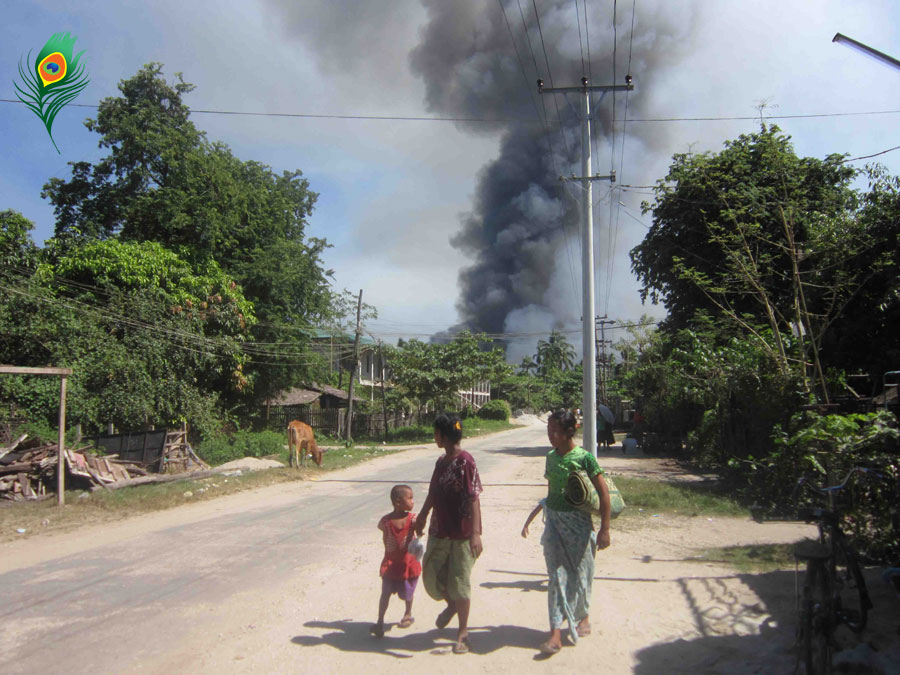The Burmese government has said up to 86 people have died, 22,500 people have been displaced from their homes and over 4,600 houses have been burnt in Rakhine State villages in at least eight townships, the UN said in a statement.

Expressing regional concern, the secretary-general of the Association of Southeast Asian Nations warned of the risk of a “radicalization” of the Rohingyas, who rights groups say have suffered the greatest loss of life and property in the recent outbreak of communal violence.
UN Resident and Humanitarian Coordinator Ashok Nigam said after visiting the affected areas with the Burmese Minister for Border Affairs Thein Htay, “I am gravely concerned by the fear and mistrust that I saw in the eyes of the displaced people in both communities.”
A United Nations team toured areas of “large scale destruction of houses” and it called on the government to swiftly restore rule of law after one week of renewed clashes between the stateless Rohingyas and Buddhist Rakhines.
In Sittwe, the Rakhine capital, the situation appeared calm but RFA reporters at the scene noted a heavy presence of rifle-toting police and military, especially around mosques and Muslim enclaves.
At the key Te Chaung Refugee Camp on the outskirts of Sittwe, Rohingya victims continued to pour into the center and spoke passionately about their plight, essentially complaining of poor treatment and saying they wanted their land back and to be recognized as citizens.
Burmese President Thein Sein, in a statement on the President’s Office website, said he was concerned that Burma’s reform program could be scuttled by the new clashes, and he ordered actions against instigators of the violence, the worst since June when another 80-odd people died and 75,000 mostly Rohingyas were displaced and continue to live in temporary shelters.
Nigam welcomed Thein Sein's statement, saying, “It is critically important that the government ensures that the rule of law prevails, prevents any further spreading of this violence and continues to communicate strong messages of harmony.”
“The violence, fear and mistrust is contrary to the democratic transition and economic and social development that Myanmar (Burma) is committed to. It should not become an impediment to progress for all people of Myanmar,” he added.
A Rakhine in Kyauk Phyu told Reuters news agency that Rakhines and Muslims had fought each other with knives, swords, sticks and slingshots.
In response to the government’s request, the United Nations and its humanitarian partners are starting food distribution and shelter—two of the most urgent needs—in addition to non-food items, water and sanitation, health and hygiene, the U.N. statement said.
Asean Secretary-General Surin Pitsuwan called for urgent regional attention to the Rakhine violence, in an interview with the Bangkok Post newspaper.
“The situation is deteriorating and there is now a risk of a radicalization of the Rohingya. This would not be good for anyone,” he said. “This would have wider strategic and security implications for the region.”
“Can you imagine the Malacca Straits (a key shipping route in Southeast Asia) becoming a zone of violence like the waters off Somalia? This would jeopardize East Asian and Southeast Asian economic security,” he said.
He said the conflict has been presented as an Islamic issue when it is not.
“It is a political, democratic, human rights and constitutional issue, and has direct implications on political reform and national reconciliation processes in Myanmar,” he said.



